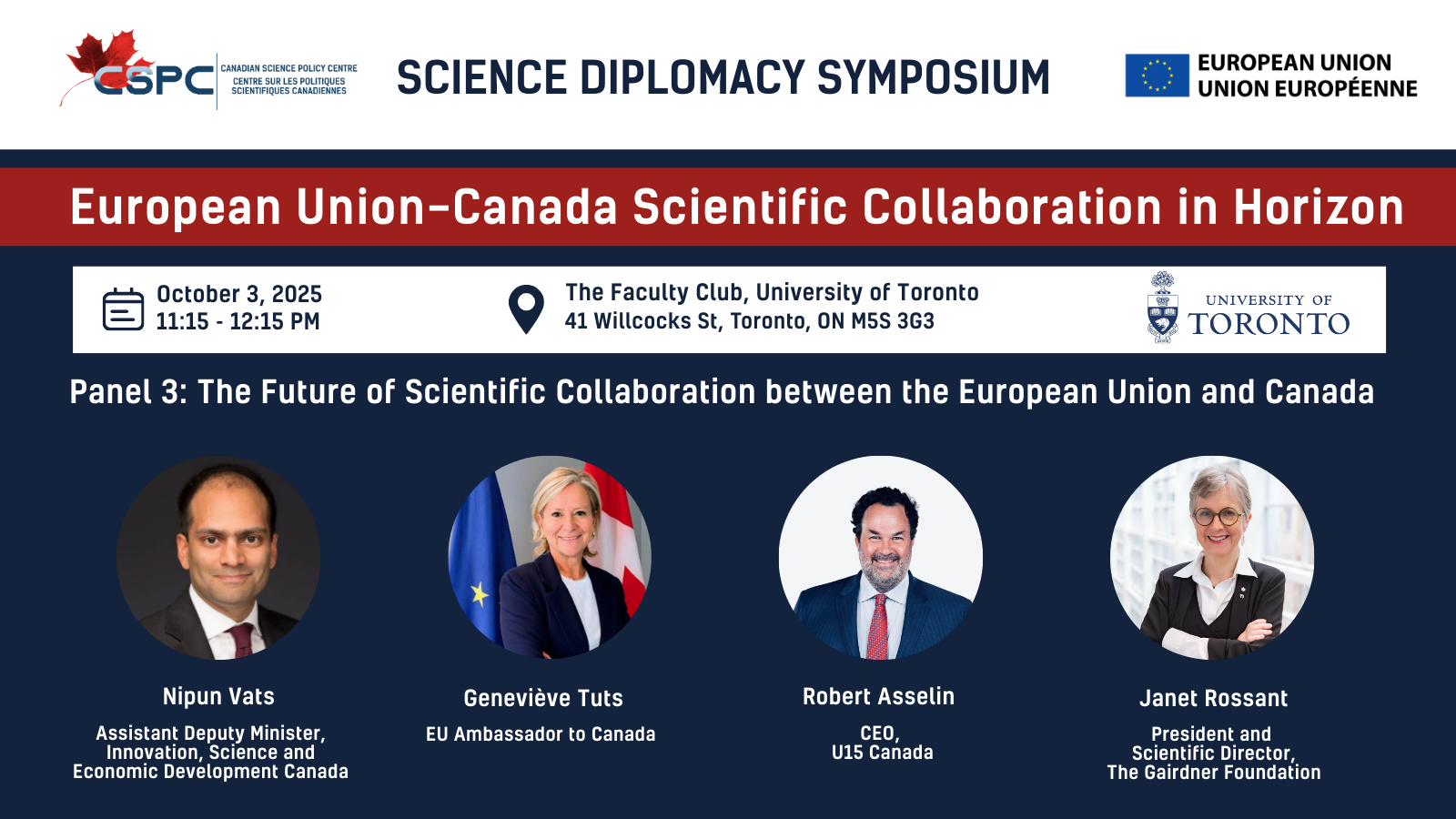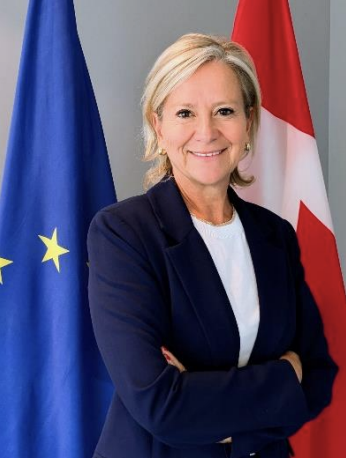

Panel 3: The Future of Scientific Collaboration between the European Union and Canada
Oct 3 @ 11:15 am - 12:15 pm EDT

Nipun Vats
Assistant Deputy Minister, Innovation, Science and Economic Development Canada
Nipun Vats
Nipun Vats is the Assistant Deputy Minister, Science and Research Sector, at the Department of Innovation, Science and Economic Development Canada. In this role, he is responsible for leading the development of federal policy and investments in post-secondary research.
Dr. Vats has held a variety of positions within the Canadian federal government, including in the Privy Council Office and the Department of Finance, and as Secretary to a National Advisory Panel on Sustainable Energy Science and Technology. Dr. Vats also served as the lead federal official in the successful negotiation of the Canadian Free Trade Agreement.
Dr. Vats holds a Ph.D. in Theoretical Physics from the University of Toronto, a B.Sc. in Physics from Dalhousie University, and a Master’s of Public Affairs from the School of Public and International Affairs, Princeton University, with a specialization in Science, Technology and Environmental Policy.

Geneviève Tuts
EU Ambassador to Canada
Geneviève Tuts
Genevieve Tuts began her tenure at the helm of the Delegation of the European Union to Canada in September 2024. She has extensive experience gained in several EU institutions, the Belgian Ministry of Foreign Affairs, and the legal profession. She served as the Head of Cabinet for European Commissioner for Justice between December 2019 and August 2024. The portfolio included Justice, Rule of law, data protection, and consumer law. Ambassador Tuts started her career as a lawyer specializing in EU law before becoming a magistrate with the Belgian Ministry of Justice. In 2002, she transitioned to the cabinet of the Belgian Minister for Foreign Affairs, where she held key roles focused on
European and external policies. As Belgium’s Representative in COREPER I in the EU Council of Ministers, she addressed a wide range of EU policies, including energy, environment, climate, and digital. She also served 13 years as Director in the Council of Ministers, leading the work of 3 Directorates: Transport, Telecom, Energy- inter institutional affairs and Legal service’s Directorate Quality of legislation. The Ambassador holds a Master’s in European Law and a Law degree. She has been an assistant at Liege University at the law faculty and Master of Conference at ENA. She speaks French, English, and Dutch. She has practised improvisational acting and has a deep appreciation for diverse music genres, playing both piano and guitar. Passionate by cinema she is also an outdoor enthusiast, she enjoys running along rivers, lakes, and coastlines.
As the EU Ambassador to Canada, Geneviève Tuts leads the EU Delegation in its work to strengthen ties between the European Union and Canada, drawing on her extensive expertise in European policy and international relations.

Robert Asselin
CEO, U15 Canada
Robert Asselin
Robert Asselin is a recognized expert on innovation, economic growth, and industrial strategy with extensive experience in senior roles within government as well as in academia.
He is currently CEO of U15 Canada, an association of fifteen research universities across Canada, dedicated to advancing research and innovation, and developing highly-qualified leaders for the benefit of Canadians. Prior to this role, he served as Senior Vice President, Policy at the Business Council of Canada where he led the Council’s work on economic and fiscal policy.
Asselin brings over a decade of experience advising at the highest levels of government, having served as Policy and Budget Director to Canada’s Minister of Finance and as a senior advisor to two Prime Ministers. In addition, he spent nearly a decade in academia, notably as Associate Director of the Graduate School of Public and International Affairs at the University of Ottawa and as Visiting Public Policy Scholar at the Woodrow Wilson International Center for Scholars in Washington, D.C. He currently serves on the advisory board of the U.S. Information Technology and Innovation Foundation.

Janet Rossant
President and Scientific Director, The Gairdner Foundation
Janet Rossant
Janet Rossant, CC, PhD, FRS, FRSC is President of the Gairdner Foundation and Senior Scientist Emeritus at the Hospital for Sick Children in Toronto and editor-in-chief of Stem Cell Reports. She is an internationally recognized developmental and stem cell biologist, exploring the biology of the early embryo and its stem cells and their applications to understanding and treating human disease. She has also been actively involved in ethics and public policy discussions around stem cell research and genetic modifications. She is a member of Royal Societies of London and Canada and the US National Academy of Sciences.
All Events

